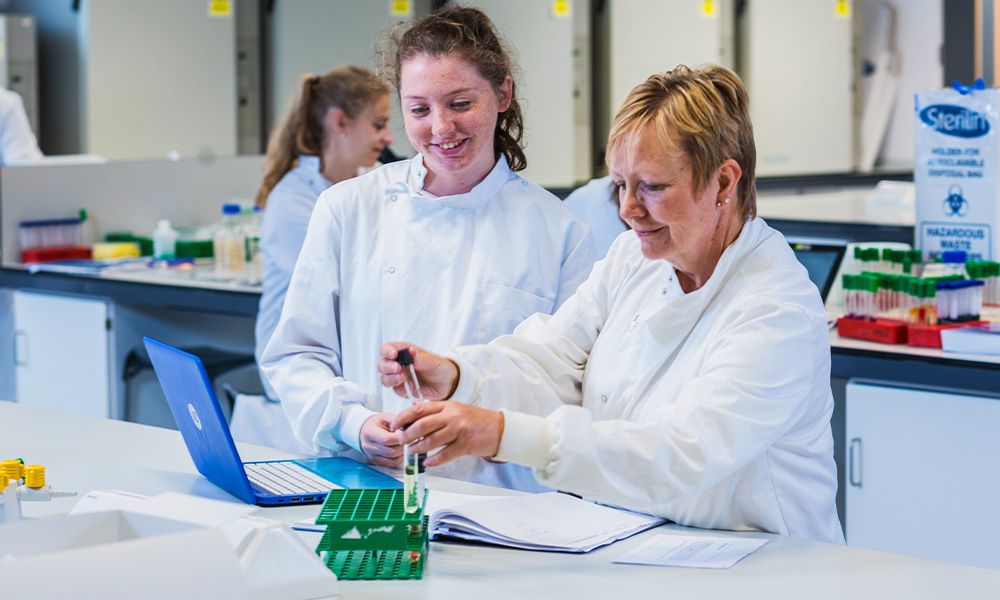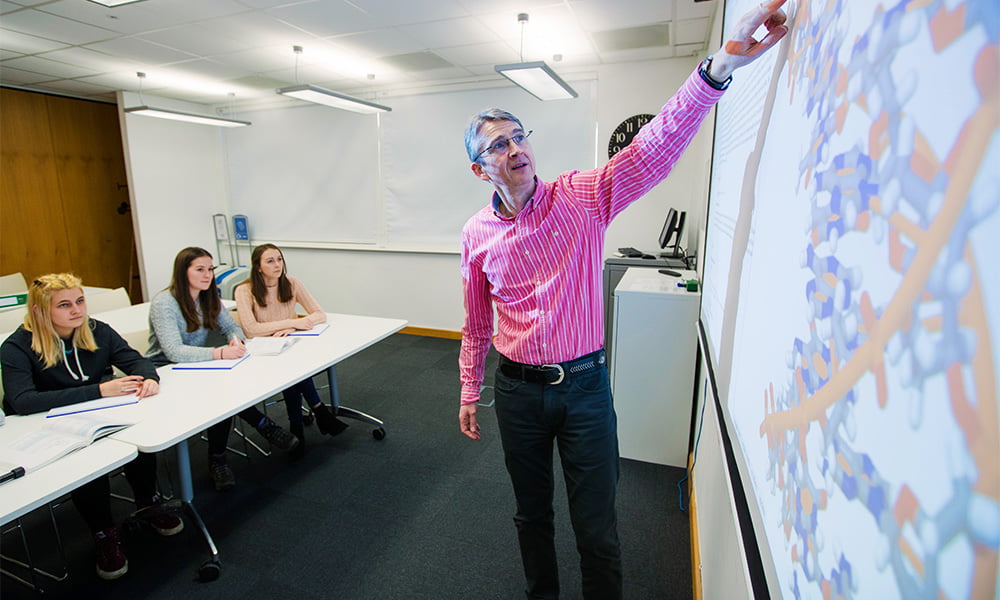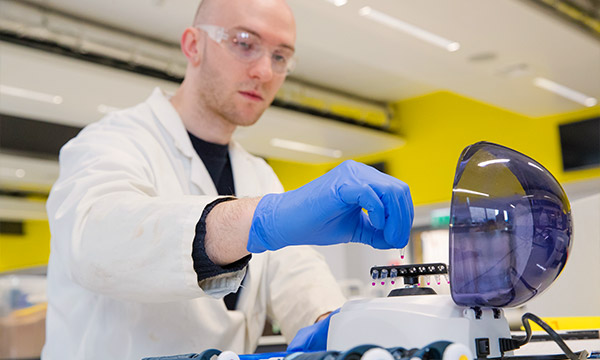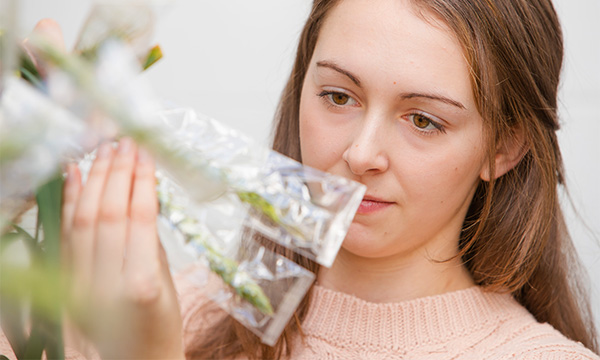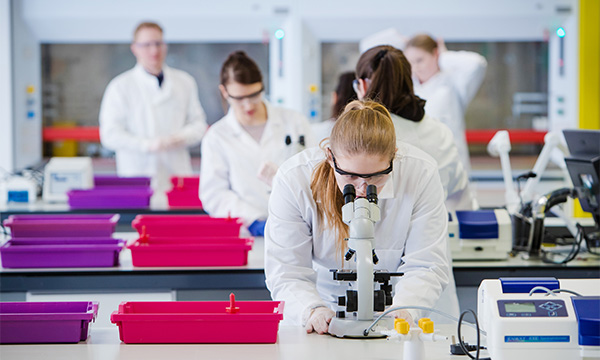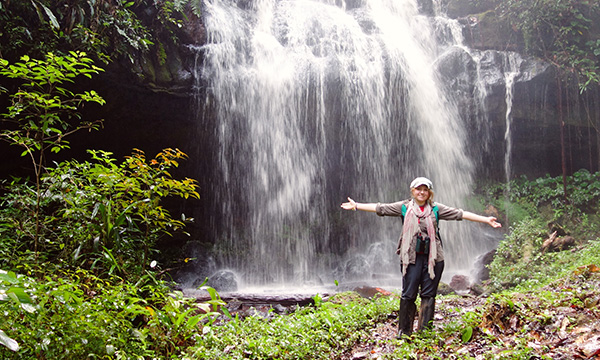Biochemistry is an exciting and rapidly developing subject and the primary investigative science within biology and medicine. You will examine the structure and function of living organisms at the molecular and cellular level, studying core modules in biochemistry and chemistry.

Biochemistry Degrees
All Courses
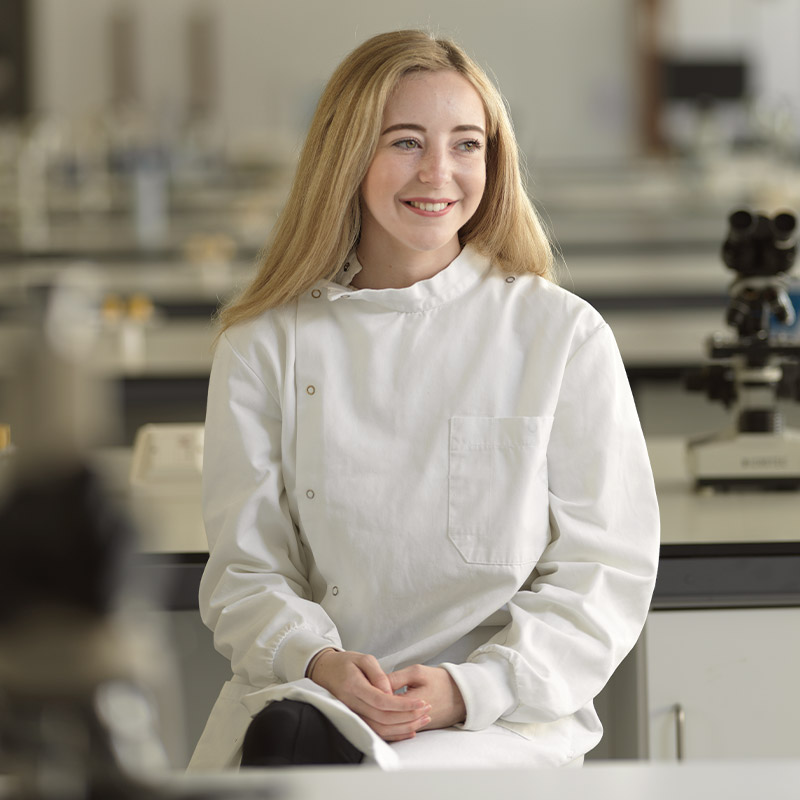
A place for Melissa
I felt like the whole vibe and atmosphere of Lancaster was the best: when I came on the Open Day straight away it was the labs that blew me away, they were so modern.
By choosing biochemistry, it’s allowed me to further learn about the impacts of people’s environments or genetics and how they may get diseases. In the first year, my degree was split between biology and chemistry so you could gauge what you wanted to choose in the second year, and even though I’m not doing straight chemistry, there is still some in the biochemistry modules.
In the practicals, I think the interaction with the lab demonstrators and lecturers is more personal than in a big lecture theatre. You can ask specific questions and see how the theory we’ve been learning applies in the lab, and you have the demonstrators there to help if you get stuck.
Melissa Knott, BSc Biochemistry
Linked icons
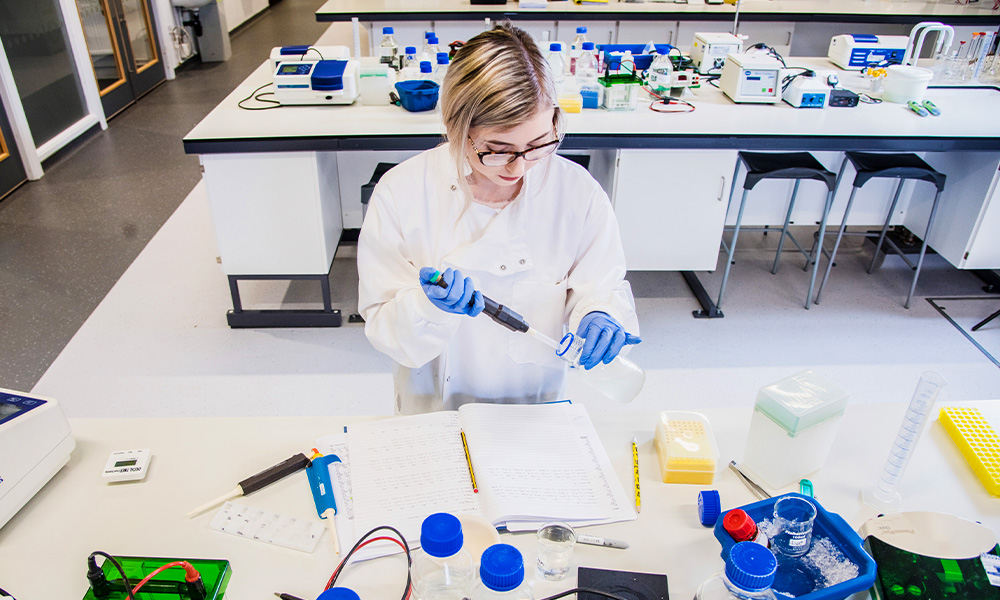
Practical study
You won’t just learn in lecture theatres! We place great emphasis on practical learning, whether that is in our new teaching labs or out in the field. On average, 50% of your contact time will be practical study. Practical learning enables you to put theory into practice and understand the principles underpinning the topics you are studying, whilst also developing skills which will be of use throughout your degree and future career.
Careers
A degree in Bioscience can enable you to specialise in a given area, but because we embed a range of transferable skills into the curriculum you are not limited purely to science-based careers. You can pursue a wide range of careers with our bioscience degrees, from biomedical science to research or from pharmacology to business.
Examples of the types of careers pursued by our Biosciences graduates include:
| Biomedical Scientist | Nature Conservation Officer | University Lecturer |
| Biotechnologist | Soil Scientist | School Teacher |
| Microbiologist | Crop Scientist | Molecular Geneticist |
| Ecological Consultant | Forensic Scientist | Reserve Manager |
| Pharmaceutical Scientist | Research Ecologist | Food Technologist |
Whatever your career aspirations may be, or even if you're still not quite sure, we're here to support you to reach your goals. You will undertake a module in employability skills, giving you excellent preparation for applying to graduate-level jobs and graduate schemes, and our dedicated Careers Service is here to assist you every step of the way. From helping you make a lasting impression with your CV to ensuring you are well prepared for interviews and assessment centres, they are able to offer you tailored and personalised support. What's more, they offer lifelong careers support to our graduates so, if you need us, we will always be here to help.
Every aspect of learning
Our academics are leaders in their fields of research and deliver enthusiastic and engaging teaching through a range of methods.
-
Assessment
The assessment process varies across modules but includes laboratory reports, essays, independent projects reports, group presentations, multiple-choice tests and exams. Assessment is an on-going process, rather than being left solely until the end of the degree. This means we are able to offer feedback to you throughout your degree as part of your on-going preparation for when modules are examined at the end of each year.

-
Lectures
Lectures provide an introduction to the key issues and findings in each topic and are delivered by an expert in that particular area. They usually last one hour and should be complemented by further independent study by reading the relevant literature on the topic. We generally provide digital recordings of lectures for revision purposes and online reading lists of suitable books and journals that are available either digitally or in print from our library.

-
Tutorials
Group tutorials are usually one-hour sessions where you will be encouraged to discuss your learning with fellow students, under the guidance of an academic tutor. During these in-depth study sessions, you will learn key skills and discuss key skills that relate to your degree.

-
Academic support
We foster a highly supportive learning environment, making sure you are fully supported to achieve your full academic potential. This includes assigning you an Academic Tutor with whom you will meet regularly throughout your degree to discuss your academic progress and access to our Student Learning Developers, who offer workshops and advice on improving your academic skills.

-
Practical classes
These are designed to help you to discover the key principles underpinning the topic of study, whilst also developing your skills which you will be able to put to use throughout your degree and future career. Practical classes could include experiments conducted in our teaching laboratories, research projects, workshops, and residential courses.



